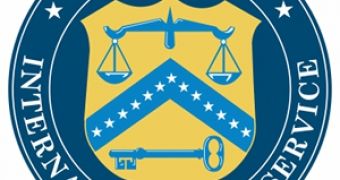The Internal Revenue Service warns taxpayers to be wary of scam emails that pose as official communications from the agency, as the tax filing deadline of April 18th draws near.
"Crooks send out unsolicited e-mails or shoot you an IM or something through Twitter asking you to send them your personal information, maybe your date of birth, Social Security number, account number, credit card number," IRS Special Agent Ron Marker told Deseret News.
"They can use an IRS logo, Treasury Department logo, things like that. Numerous takes on the irs.gov web address, you know dot.com, dot.net. They might use a space here and there or add another letter," he adds.
Of course, the tax season is always accompanied by phishing scams and the IRS is one of the most spoofed agencies, especially since tax e-filing has become a standard practice.
Last year around 90 million tax returns were filed using the electronic system, 30 million of which originated from home computers.
Researchers from messaging security vendor AppRiver adivse users about several measures they can take to avoid falling victim to phishing attacks.
First of all, people should not trust any emails claiming to come from the IRS, because the agency doesn't initiate contact with taxpayers via email.
Second, the IRS will never ask for a credit card CVV2 or PIN number to send tax refunds in either emails or web forms.
As a general rule, people should never click on links and attachments in unsolicited emails or if they absolutely need to, they should exercise extra caution.
The AppRiver experts also advise against using insecure wireless hotspots to perform financial transactions or log into sensitive accounts.
Logging out from websites is also a must as cyber criminals can hijack sessions that were left open. And most importantly, always check for the presence of SSL encryption on websites that request financial information.

 14 DAY TRIAL //
14 DAY TRIAL //